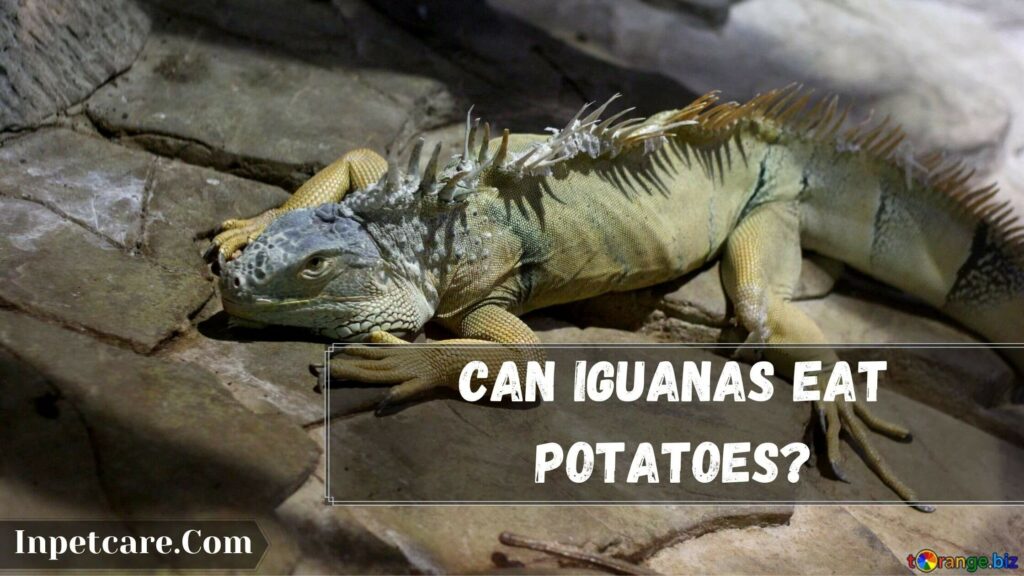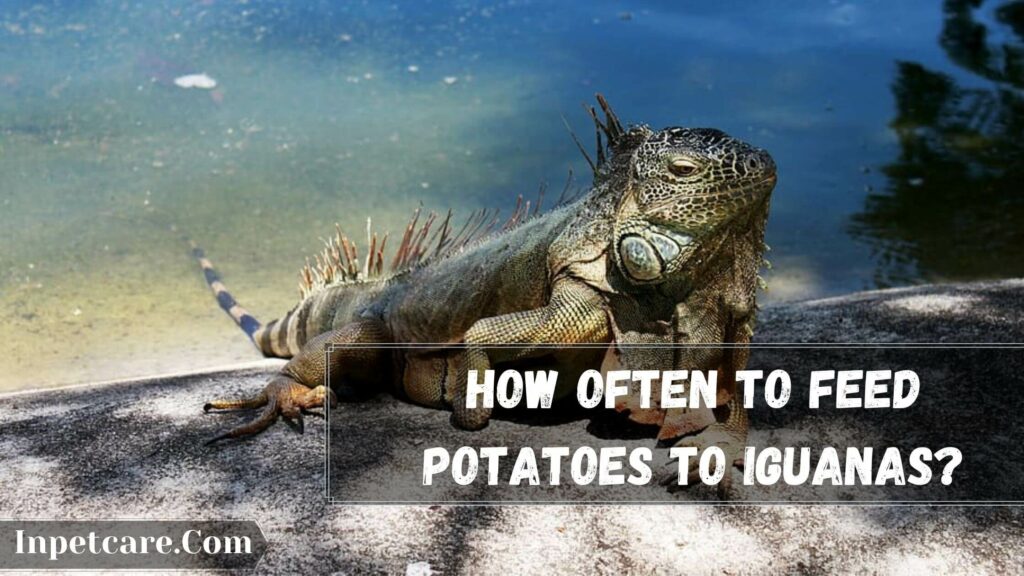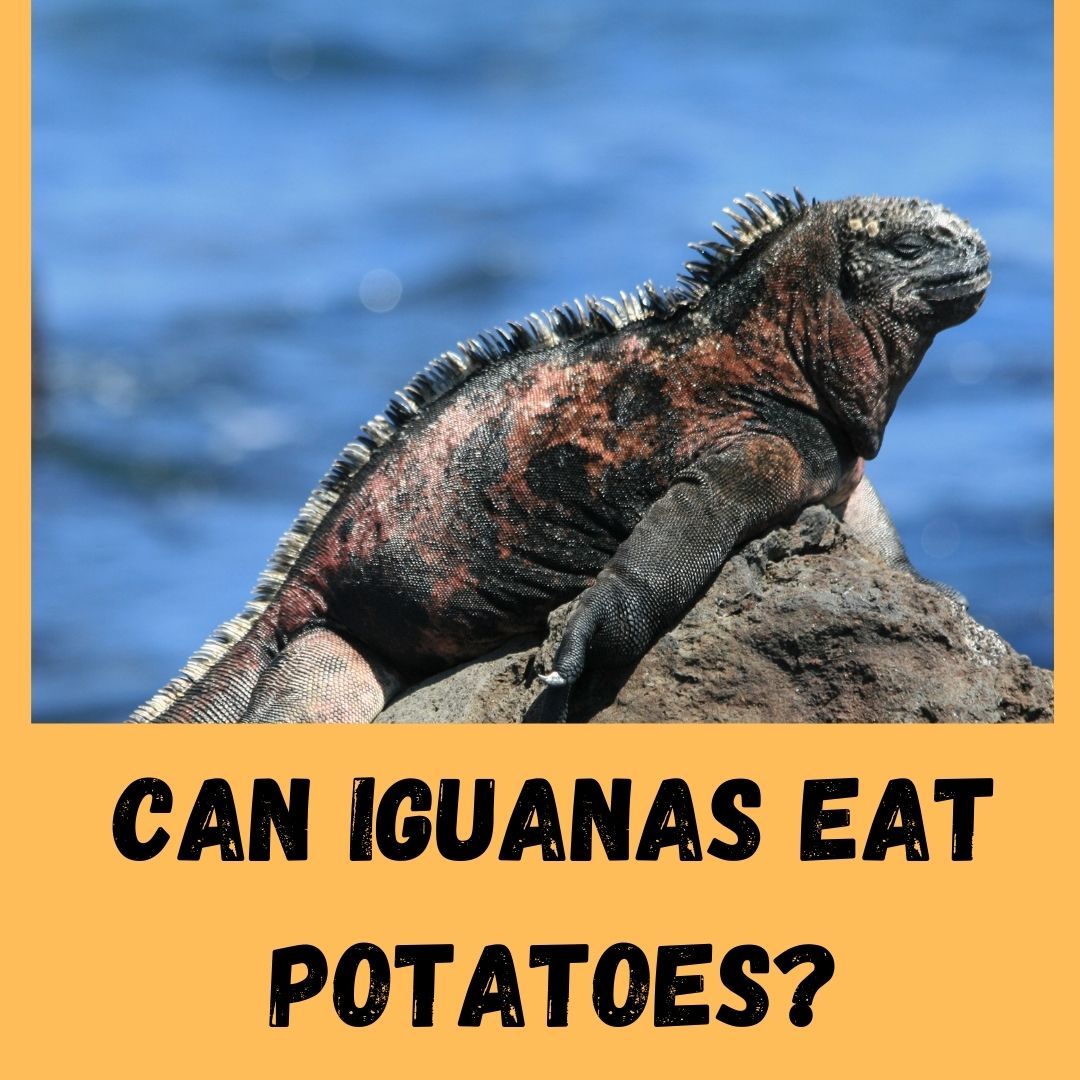We always hear about the benefits of feeding turnip, broccoli, kales, and dandelion Greens as food for iguanas. But people rarely talk about potatoes. Can Iguanas eat potatoes? Being a responsible Iguana owner, you should know what food Iguanas can eat and cannot.
In most cases, Iguanas are not very picky eaters and will eat anything in sight they find resembling food. We will explore and see if potatoes can be included in an iguanas food list or not. Therefore, keep reading for more information.
Post Contents
Can Iguanas Eat Potatoes?

Yes. An iguana can eat potatoes occasionally. Feeding potatoes isn’t going to be poisonous for your Iguana, but the hard truth is that they have little nutritional value needed for your pet. Vegetables like potatoes lack vital nutrients that could have helped Iguana grow stronger and bigger. All in all, potatoes are nothing more than nearly empty food.
Potatoes usually carry a poor ratio of calcium to phosphorus. Therefore, all are aware that food that has disproportionate calcium to Phosphorus ratio should always be excluded from an iguana’s regular diet. Feeding potatoes regularly is not good for your iguanas either way.
In Addition, potatoes are also high in carbs, making them a good source of energy. However, still, it’s not recommended to be included in an iguana’s diet, especially if they are not very physically active. There are many reasons why you should never include potatoes in your Iguana staple food. Hence, let’s look at our potatoes, good or bad for Iguana.
Are Potatoes Good Or Bad For Iguanas?
The carbohydrate present in potatoes can serve as a source of energy but not daily to an Iguana. In Addition, the sugar content present in potatoes is also a little bit high, making it the potential cause of unhealthy weight gain and other health issues in Iguana.
The other main reason you should never include potato as a staple food for your Iguana is its super high Phosphorus content. The phosphorus can cause many health issues if fed regularly. You will need to cook the potato before offering it to an Iguana; they will lose all their natural nutrients.
This is another problem. Always remember that the Iguana diet in captivity should always resemble their diet in the wild. So, even if you consider feeding potatoes to your reptile, make sure it is in moderation and only in small amounts. Potatoes are not ideal for Iguana either.
Rather than choosing potatoes, go on a safer route and choose other healthy Greens and fruit instead. Foods like cabbage, carrots, cucumber, bell peppers, acorn squash, butternut squash, and mustard Greens are much safer in a healthy iguana salad. You should consider two or more types of food in the salad to make it look colorful and enticing to eat.
Why Is Phosphorus So Bad For Iguanas?
Iguanas do need phosphorus to get them going and keep their body function healthy. The only problem is that foods high in Phosphorus content can cause harm to iguanas instead of good. The foods that are poor in calcium to Phosphorus ratio should always be kept away from their serving.
The ideal ratio is 2:1 for Iguana wellbeing & health. Unfortunately, due to having a disproportionate level of calcium and phosphorus, potatoes cannot be fed to an Iguana. If potatoes are fed daily, it can result in calcium deficiency. And calcium deficiency will also result in many unwanted health conditions that may be serious.
Plus, calcium Deficiency, in turn, can result and cause metabolic bone disease, which is characterized by brittle and weak bones. The metabolic bone disease will make your Iguana experience difficulty maintaining their appetite, being active, and walking around. Therefore, the effect of calcium deficiency, in the long run, can be fatal to any Iguana.
How Often To Feed Potatoes To Iguanas?

If you want to feed potatoes to your Iguana, even after knowing it can be fatal to their health if fed daily, you must follow a good preparation routine before serving it to your Iguana. Always prepare the potato by cooking and slicing it.
The slices of potato should be in a small size, smaller than the space between your Iguana’s eyes, to prevent impaction & choking. It is only recommended to offer small chunks of cooked potatoes on rare occasions, maybe once a month or less.
It is important to keep it rare because cooked food is not interesting to them either. It will be better if you have sweet potatoes than white ones. You cannot only cook the sweet potato but can also serve it raw. The sweet potato carries less starch, calories, carbs, and phosphorus than white potatoes.
It is also rich in vitamin A which is good for Iguana’s health. But, On the other hand, feeding vitamin A in excess can also be toxic to your Iguana, which means it should only be served as a rare side snack.
Interesting Further Reading
- 5 Reasons Why Do Iguanas Bob Their Heads?
- 5 Humane Ways To Dispose Of Dead Iguana
- 9 Best Type Of Iguana For A Pet
FAQ
Conclusion
Potatoes are not a great fit for an iguana’s diet. Although it is not going to harm if fed occasionally, it shouldn’t be served as a staple food in any reptile diet, including iguanas, because it lacks many nutrients necessary for your pet’s wellbeing.
It is better to first understand the nutritional requirements of your owners and learn what requirements differ between humans and other pets. You will know that they need more calcium than phosphorus to prevent many diseases. The food served to iguanas should always have less sugar to prevent obesity and tooth decay.
Therefore it’s always better to check the macro and micronutrients of the food before purchasing one and help yourself choose the best. It is always better to stick with a diet plan your pet’s veterinarian recommends.
I have tried my best to give you an in-depth explanation of the question: can Iguanas eat potatoes? I would appreciate it if you shared this article. Your one share can help many people learn about the harmful effect of feeding potatoes to their lizards and reptiles.

94% of pet owners say their animal pal makes them smile more than once a day. In 2007, I realized that I was made for saving Animals. My father is a Vet, and I think every pet deserves one. I started this blog, “InPetCare”, in 2019 with my father to enlighten a wider audience.
